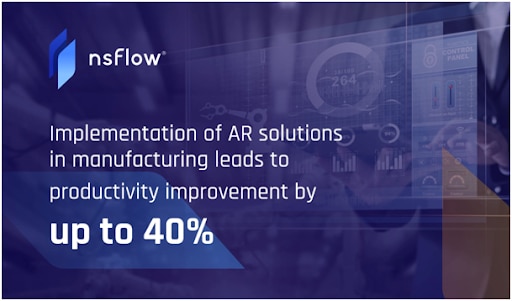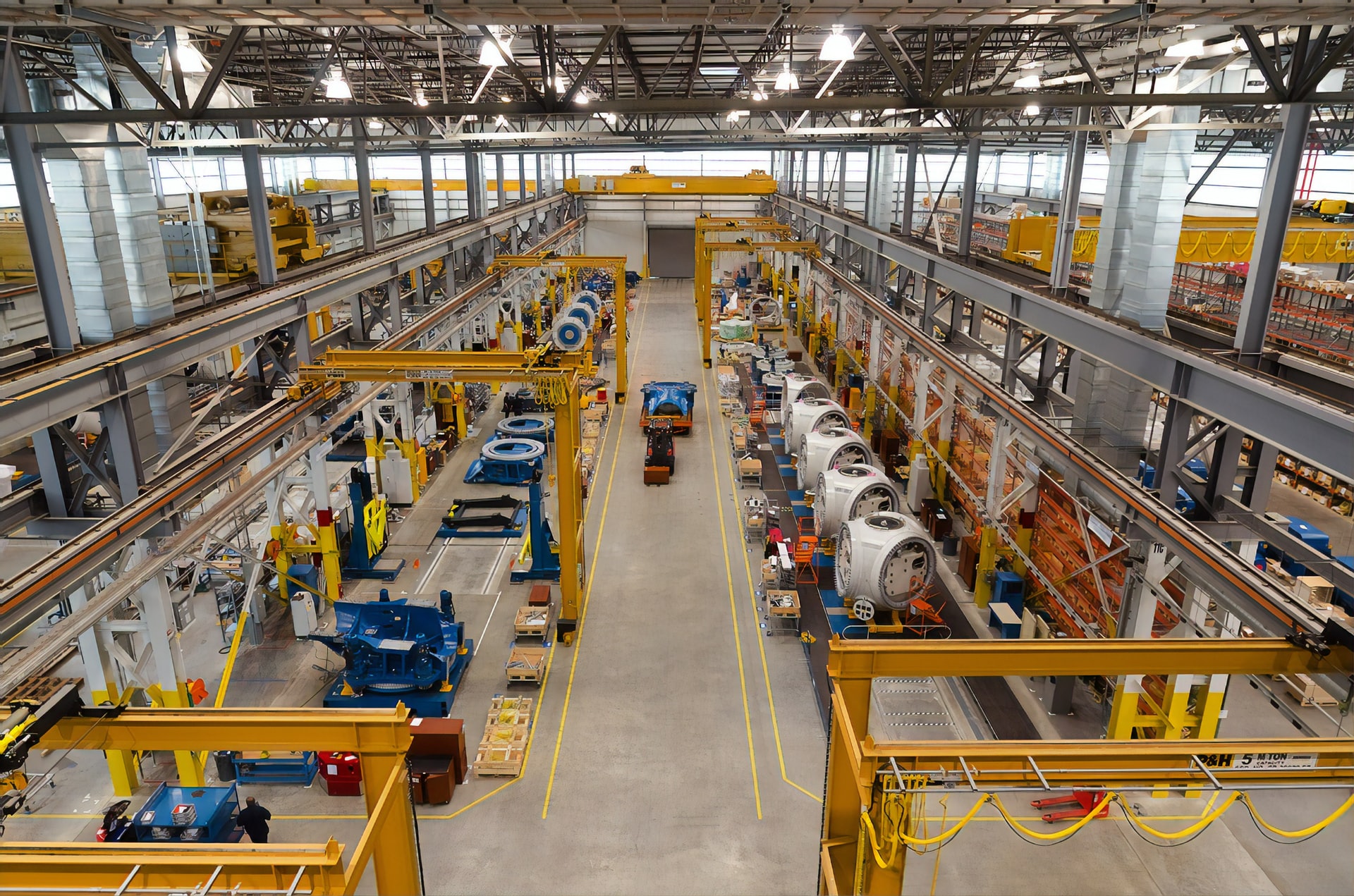E-learning platforms have already become popular in large and medium-sized companies, where they are used to effectively implement Learning and Development strategies. Technological development and the consequent advances in augmented reality, artificial intelligence, and remote specialist support have recently caused the industrial sector to consider the use of LMS platforms as well.
This article will explain the following:
- How is the industry using e-learning platforms?
- What should characterize an industrial LMS?
- How can a modern Learning Management System (LMS) be useful?
Industrial e-learning platforms
The dynamic development of technology is permanently revolutionizing the industrial sector and redefining existing business processes. It forces companies to invest and make decisions based on real-time data analysis. In order to optimize the way the company operates, effectively anticipate the upcoming trends, and quickly adapt to changes, managers should equip their employees with the necessary competencies.
Nowadays, it is as important to focus on human capital as never before. This is partly due to the fourth industrial revolution (Industry 4.0) and the demographic factors. The growing population of Millennials is estimated to constitute 75% of economically active people already in 2025. This fact will necessitate redefining the Learning and Development policy, as well as employee recruitment.
Modern LMS platforms allow companies in the industrial sector to successfully transform and meet the growing need for knowledge. E-learning platforms improve work, accelerate onboarding processes, and help companies constantly expand their knowledge. At the same time, they positively affect the financial aspect of personnel training. E-learning, which includes machine operation training and on-the-job training, is scalable, extremely efficient, and motivating. Courses can take place anywhere and anytime, and they don’t necessitate the involvement of company experts.
E-learning also showed its advantage over traditional training courses during the pandemic. In many cases, remote training even contributed to the maintenance of business continuity. Properly prepared educational materials – especially instructional videos and on-the-job training courses – allow companies to cope with the most difficult situations, even those involving the presence and support of key employees or company experts.
Features of industrial e-learning platforms
The business expectations for remote learning platforms are mostly the same, regardless of the size of the company and industry branch. From the perspective of managers, the key factors include the following:
- ease and speed of implementation;
- scalability;
- flexibility;
- availability on multiple devices;
- intuitive operation from the end-user perspective;
- ease of platform management;
- wide possibilities of creating courses;
- advanced options for monitoring and reporting progress.
Any remote learning platform should offer the features above, but the requirements of the industry are quite specific and should be taken into account at the stage of platform selection. Industrial LMS platforms should meet the training needs reported by the organization, offer courses and formats ensuring the highest efficiency, motivate students, and generate considerable savings.
In the industrial sector, on-the-job and onboarding training courses are usually the most time-consuming. They are most often conducted by experienced employees, which translates into measurable costs, especially when the company dynamically recruits new employees or struggles with a high rate of staff turnover. A modern remote learning platform can effectively solve this problem and free up resources. However, for that purpose, it is necessary to choose an LMS platform that features artificial intelligence (AI), virtual reality (VR), or augmented reality (AR).

Thanks to the use of modern technology, employee onboarding and problem-solving are much simpler and faster. It is enough to prepare proper educational materials and take advantage of augmented reality. As a result, employees will become accustomed to their responsibilities without the participation of third parties and, more importantly, in a completely safe environment. Artificial intelligence, in turn, can answer frequently asked questions of students – as a result, they will receive the necessary information almost immediately.

Ways of using LMS platforms
In many organizations, e-learning platforms are primarily used to effectively manage employee education and to monitor the completion of compulsory training courses (e.g. OHS). Due to the specific requirements of the industrial sector, LMS platforms can be used in a slightly different way and assist in, among others:
Onboarding training in virtual reality
Employee onboarding takes time and usually generates considerable costs. By creating a course that uses elements of virtual reality (VR), it is possible to guide new employees through the company’s rooms, introduce them to the management, present the functions and responsibilities of key departments, and even transfer the entire production line to the virtual world in order to follow and thoroughly discuss the entire process.
Hands-free on-the-job training with the use of AR
After completing the initial training course, employees usually start on-the-job training, which is generally conducted by company experts. Thanks to augmented reality, the assistance of the most experienced employees is not necessary. They are effectively replaced by AR glasses, which present important content in front of employees’ eyes, allowing them to better understand the scope of duties, the way a particular machine operates, or the risks associated with particular positions.
Remote expert support
Glitches and malfunctions occur in companies almost every day. AR glasses and the remote support of experts provide a quick and effective solution. This is especially important in the case of companies that have several production plants located in different parts of the country or the world. An expert will be able to quickly solve the problem no matter where his or her location is. Consequently, the company can maintain the continuity of production and avoid the risk of penalties for missing a deadline.
Digital knowledge repository
A modern LMS platform is also an opportunity to centralize the company’s know-how in one place. In other words, it is possible to create a digital knowledge base accessible by employees at any time and allowing them to constantly expand their knowledge using any device (a computer at work, a private laptop, or a telephone). It is also a great way to protect the company against the consequences of essential staff departure, which usually results in the loss of invaluable knowledge. Broad opportunities to develop qualifications are a key factor in the selection of an employer by the Millennial generation, hence the creation of such a centralized repository may also facilitate the acquisition and retention of talents in the company.










